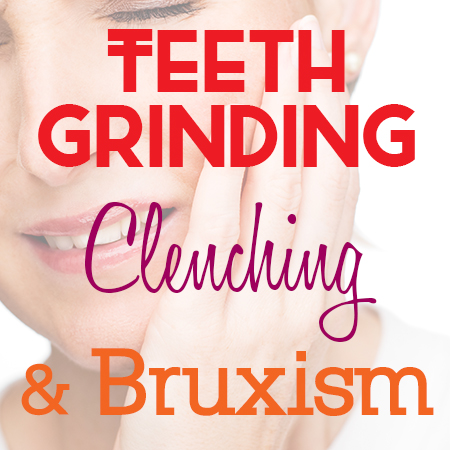Teeth Grinding, Clenching & Bruxism
Posted on September 27th, 2022
 There is a good chance you have heard someone mention the term ‘bruxism’ and discuss the problems it can cause for your oral health. At the office, we talk about a lot of technical dental stuff that doesn’t necessarily concern our patients, but bruxism is something we definitely want you to know about. Stress and bruxism go hand in hand, and Veranda Dentistry is going to tell you exactly what that means and how it affects your health.
There is a good chance you have heard someone mention the term ‘bruxism’ and discuss the problems it can cause for your oral health. At the office, we talk about a lot of technical dental stuff that doesn’t necessarily concern our patients, but bruxism is something we definitely want you to know about. Stress and bruxism go hand in hand, and Veranda Dentistry is going to tell you exactly what that means and how it affects your health.
Alright, we know you are on the edge of your seat! What is bruxism and why does it concern you? Well, how often do you find yourself clenching your jaw or notice others doing just that? Bruxism is a common condition characterized by jaw clenching and the grinding of teeth. It is perfectly normal to clench your jaw and grind your teeth from time to time, but it can be very damaging if it gets to be a regular habit. The biggest issue with bruxism is that people are rarely aware that they suffer from this condition, and left unchecked, it can cause a number of painful and inconvenient side effects.
Have you or a loved one suffered from any of the following symptoms?
- Your teeth have become chipped, broken, flattened or worn down
- You have experienced pain, fatigue, or tightness in your jaw
- You have frequent earaches
- You have frequent headaches
- Your teeth have become noticeably more sensitive
- Your tongue has odd indentations
- The insides of your cheeks are damaged from chewing
- Your loved ones and/or sleeping partner notice that you frequently grind your teeth while you are sleeping.
If any of these telltale signs are familiar to you, it is time to let Veranda Dentistry know. If you suspect you might have a damaging case of bruxism but aren’t sure, we recommend that you ask your spouse or partner. This is because loved ones are more likely to notice you grinding your teeth before you do.
Now that you know what bruxism is, let’s talk about why it happens. The answer is simple: stress. An increase in stress and/or anxiety is most likely the culprit behind a serious case of teeth grinding. Bruxism is one of many psychosomatic (physical manifestations of psychological problems) conditions that stress can cause and it can be especially damaging if any of the following categories apply to you.
Factors that can make the effects of bruxism worse:
- An abnormal bite
- Missing teeth
- Crooked or improperly aligned teeth
- Recent dental (including cosmetic) work
- Recent orthodontic work
In some cases, bruxism can be caused by Parkinson’s disease or Huntington’s disease. Antidepressants have also been known to cause bruxism, but this side effect is rare. If you are suffering from bruxism, it is most likely because of stress related to your daily life.
Why is Bruxism a Big Deal?
Good question. In most cases, it is not a big deal. However, Veranda Dentistry reminds us that patients who have severe bruxism are at risk for any and all of the following complications:
- Chronic headaches
- Temporomandibular Disorders (TMD, i.e. jaw problems)
- Damage to crowns, implants, bridges, and dentures
- Chipped, broken, or worn-down teeth
- Chronic pain in mouth, jaw, or head
What to Do if You Have Bruxism
Treating the symptoms of teeth grinding is important and Veranda Dentistry will certainly help with that, but bruxism often requires more. The best option is to work on alleviating the stress of your daily life. Easier said than done, we know, but we at Veranda Dentistry are here to help you get through it. Exercise, meditation, and good hobbies often work wonders, but counseling is a great option as well. In addition, Veranda Dentistry can set you up with a mouthguard that will help mitigate the effects of teeth grinding. Not all bruxism guards are created equally — it is possible to exacerbate your condition with anything other than custom-fit, medical-grade products.
Contact Veranda Dentistry today and we’ll help protect you and your family from bruxism!
The content of this blog is not intended to be a substitute for professional medical advice, diagnosis, or treatment. Always seek the advice of qualified health providers with questions you may have regarding medical conditions.


